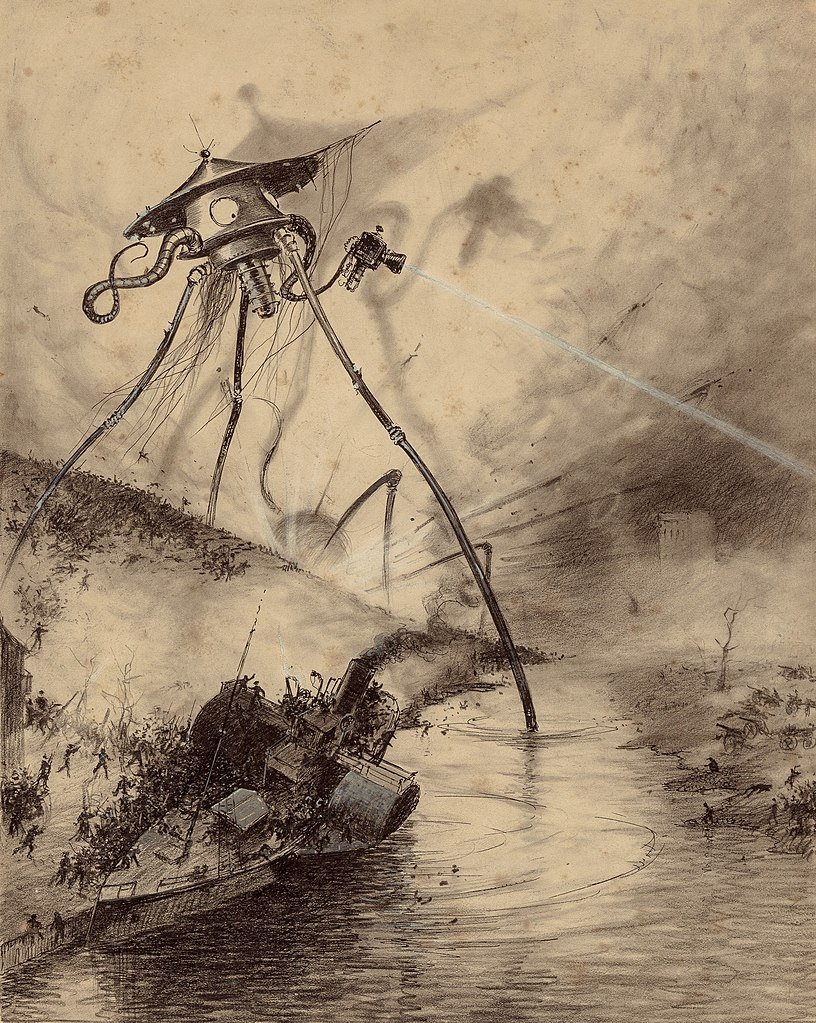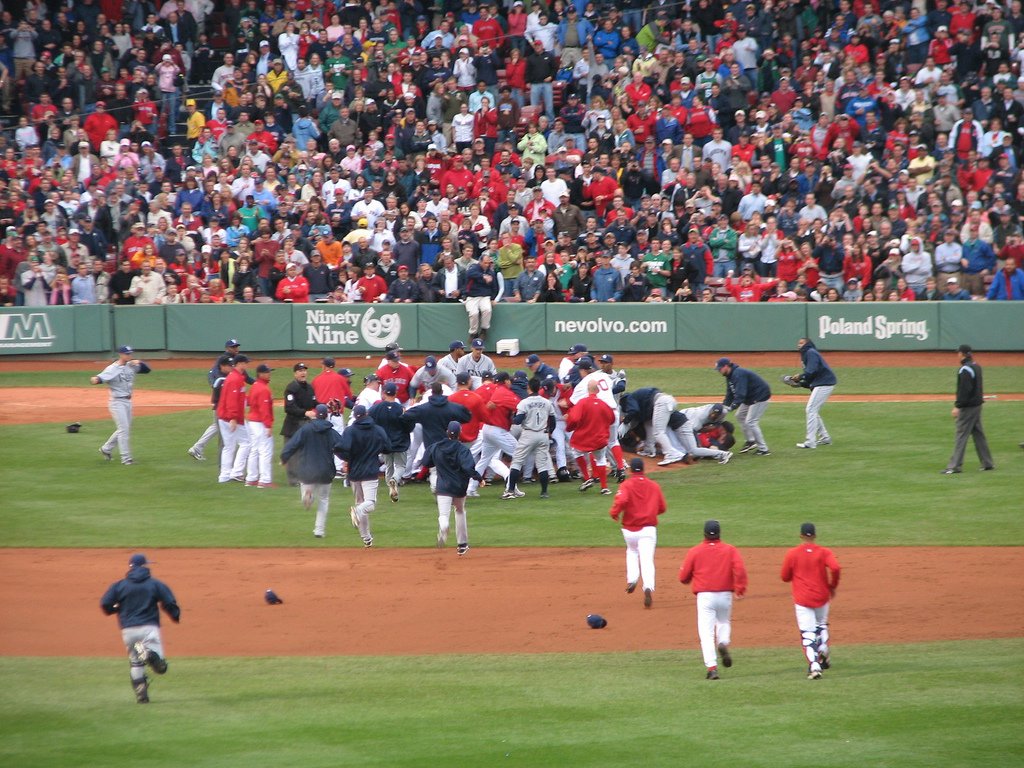14 June 2023
The term speculative fiction means different things to different people. Most often it is synonymous with science fiction, but it is also interpreted more broadly to include fantasy, horror, magical realism, fairy tales, and other imaginative works. In other words, it is fiction that includes imaginative elements, and is often, but not always, set in a future where the imaginative elements are based on scientific theories that are not yet realities.
Robert Heinlein is often credited with coining the term speculative fiction, but while his use undoubtedly popularized and helped usher in the term’s widespread use in the mid twentieth century, others had been using the term for nearly a century. In a 1947 essay, “On Writing of Speculative Fiction,” Heinlein wrote:
There are at least two principal ways to write speculative fiction—write about people, or write about gadgets. There are other ways; consider Stapleton’s “Last and First men,” recall S. Fowler Wright’s “The World Below.” But the gadget story and the human-interest story comprise most of the field. Most science fiction stories are a mixture of the two types, but we will speak as if they were distinct—at which point I will chuck the gadget story aside, dust off my hands, and confine myself to the human-interest story, that being the story I myself write. I have nothing against the gadget story—I read and enjoy it—it’s just not my pidgin.
Two years later, in a 4 March 1949 letter, Heinlein wrote:
[Alice Dalgliesh, editor at Scribner’s] has fixed firmly in her mind a conception of what a “science fiction” book should be, though she can’t define it and the notion is nebulous—she has neither the technical training nor the acquaintance with the body of literature in the field to have a clearly defined criterion. But it’s there, just the same, and it reads something like this: “Science has to do with machines and machinery and laboratories. Science fiction consists of stories about the wonderful machines of the future which will go striding around the universe, as in Jules Verne.”
Her definition is all right as far as it goes, but it fails to include most of the field and includes only that portion of the field which has been heavily overworked and now contains only low-grade ore. Speculative fiction (I prefer that term to science fiction) is also concerned with sociology, psychology, esoteric aspects of biology, impact of terrestrial culture on the other cultures we may encounter when we conquer space, etc., without end. However, speculative fiction is not fantasy fiction, as it rules out the use of anything as material which violates established scientific fact, laws of nature, call it what you will, i.e., it must [be] possible to the universe as we know it. Thus, Wind in the Willows is fantasy, but the much more incredible extravaganzas of Dr. Olaf Stapledon are speculative fiction—science fiction.
Another writer of speculative fiction, Margaret Atwood, defined the term thusly in 2011:
What I mean by “science fiction” is those books that descend from H. G. Wells’s The War of the Worlds, which treats of an invasion by tentacled, blood-sucking Martians shot to Earth in metal canisters—things that could not possibly happen—whereas, for me, “speculative fiction” means plots that descend from Jules Verne's books about submarines and balloon travel and such-things that really could happen but just hadn't completely happened when the authors wrote the books. I would place my own books in this second category: no Martians. Not because I don't like Martians, I hasten to add: they just don't fall within my skill set. Any seriously intended Martian by me would be a very clumsy Martian indeed.
But the phrase is much older. Speculative fiction appears in the mid nineteenth century in the sense of a falsehood, a lie. Nathan Lord, president of Dartmouth College, wrote the following in a public letter dated 1 December 1859:
Any other view of man or of society, in the present state, can produce nothing but a spiritual inflation swelling us with self-sufficiency, and firing us with ambition, reducing us to mere competitors and strugglers for an ideal good, and at length exploding all our gaudy visions of a millennial Commonwealth. It is this speculative fiction, not of Puritan but our revolutionary fathers, whom we blame, however, not for revolutionizing society, but for re-constructing it on a false philosophical idea.
But this usage, which continued through the rest of the nineteenth century, has little to do with the literary genre beyond sharing the collocation of words.
A few years earlier than Lord’s letter, in 1856, we see speculative fiction being used in the sense of a literary genre. Here it is used not in the sense of futuristic possibilities, but in the sense of a broader imaginative literature. From the North British Review of August 1856:
In still more recent times, there has been a new literary avatar in the serial novels of Dickens, Thackeray, Lever, and their imitators, and even, competing with that, there has appeared what may be called the literature of philosophical and speculative fiction.
And in 1887, we see the following in the December issue of the Atlantic Monthly:
If we compare a finely chiseled piece of work like this with the flat, faintly colored sketches which are at present passing muster for novels, we feel that beauty of form is something not compounded of earthly materials only, and that neither the savage strength of French and Russian realism, nor the dreary monotony of German speculative fiction, can lift us any nearer the tranquil realms of art.
Exactly what is meant by “German speculative fiction” is not clear, but it probably refers to the work of, among others, Kurd Lasswitz (a.k.a Velatus) and his wissenschaftliche Märchen (scientific tales).
And by 1889 we see speculative fiction clearly being used to refer to what we today would classify as science fiction. From a book review in the October 1889 issue of Lippencott’s Monthly Magazine:
Mr. Besant has, since the success of his utopian “All Sorts and Conditions of Men,” been very much in the air. In fact, he has become both a prophet and a reformer. Edward Bellamy, in “Looking Backward," and George Parsons Lathrop, in a short story, "The New Poverty," have followed the example of Anthony Trollope and Bulwer in speculative fiction put in the future tense. Mr. Besant’s “Inner House” is as clever as any of these efforts. His German professor discovers the art of prolonging life, and the Royal Institution at once monopolize and use it for the good of the minority. A massacre of the old is ordered, and at the opening of the story everybody has been young for five hundred years.
Speculative fiction is yet another example of the recency illusion in relation to words and phrases. They are often much older than one thinks.
Sources:
Atwood, Margaret. “If It Is Realistic or Plausible, Then It Is Not Science Fiction.” Gizmodo, 6 October 2011.
Egan, Maurice F. “Book-Talk.” Lippencott’s Monthly Magazine, October 1889, 597. ProQuest Magazines.
Robert A. Heinlein. Letter to Lurton Blassingame, 4 March 1949. In Grumbles from the Grave. New York: Ballantine, 1989, 49. Archive.org.
———. “On the Writing of Speculative Fiction” (1947). In Lloyd Arthur Eshbach, ed. Of Worlds Beyond: The Science of Science Fiction Writing, second edition. Chicago: Ardent Publishing, 1964, 13–19 at 13.
Historical Dictionary of Science Fiction, 16 December 2020, s.v. speculative fiction, n.1, n.2, n.3.
Lord, Nathan. “President Lord’s Letter” (1 December 1859). Congregational Journal (Concord, New Hampshire), 16 February 1860, 1/5. Readex: America’s Historical Newspapers.
Oxford English Dictionary, second edition, 1989, s.v. speculative, adj. and n.
“Recollections of the Table-Talk of Samuel Rogers.” North British Review (Edinburgh), August 1856, 426. ProQuest Historical Periodicals.
Repplier, Agnes. “Some Aspects of Pessimism.” Atlantic Monthly, December 1887, 765. ProQuest Magazines.
Weaver, Toze. “What Is Speculative Fiction?” Medium.com, 2 August 2021.
Image credit: Henrique Alvim Corrêa, 1906. Wikimedia Commons. Public domain image.





